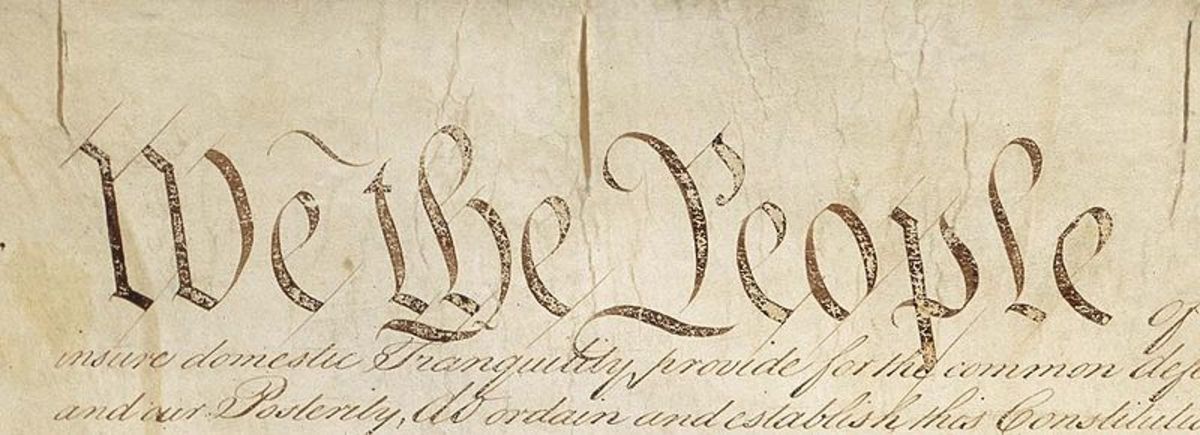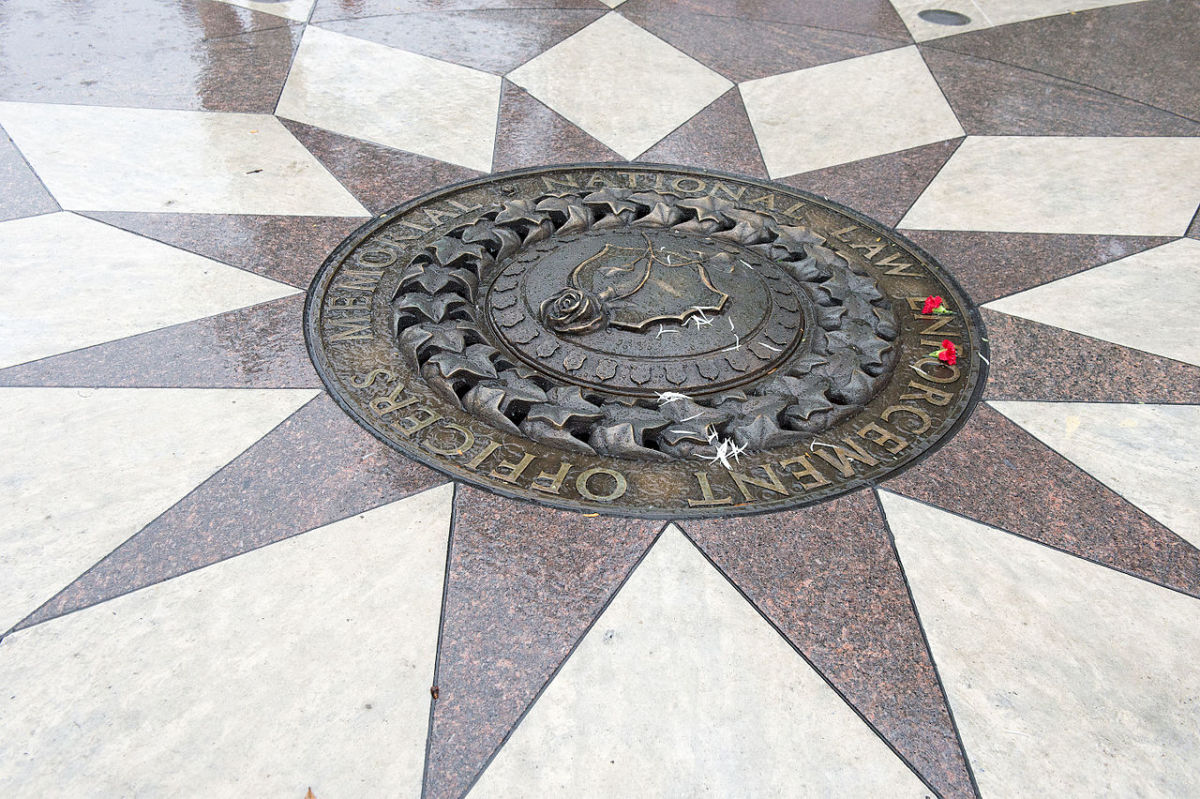Police Traffic Stops And The Fourth Amendment
Samuel Dubose During Traffic Stop

From Simple To Serious
Traffic stops by policemen have been occurring nearly since the first automobile was built and driven. Anywhere in America a routine traffic stop can be seen happening on any road in the country. There is nothing strange about that. What is strange is when people end up dead as a result of one and that is exactly what happened in the cases of Sandra Bland and Samuel Debose. Although Bland died after incarceration from a traffic stop many believe the stop was responsible for her death. Dubose's death was a direct result of a traffic stop gone bad. These two incidents on the heels of each other bring serious issues to light that need to be addressed before someone else dies from a minor traffic violation.
The Fourth Amendment
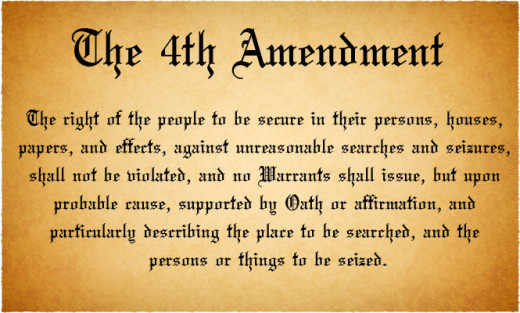
The Letter Of The Law
The Fourth Amendment is the basis from which traffic laws regarding traffic stops operates. The Fourth Amendment found in the Bill Of Rights of the United Sates Constitution was written to protect citizens from illegal search and seizure of their person (body) and their property (home, car, etc.). The premise of the amendment is that citizens should not be subjected to random detainment, search or arrest without a substantial probability that a criminal act has or will be committed. It was intended to keep citizens from being subject to authorities being able to accost them for any trumped up reason. In the case of a vehicle there must be evidence that a traffic law was violated or some other law was violated in which the occupants of the vehicle or the vehicle itself participated in for it to be stopped or detained. It is not enough for the authorities to suspect someone has committed a crime they must have evidence that a crime has actually been committed or is about to be committed. In the case of a traffic stop the violation of a traffic law no matter how minor, is grounds to stop, detain and in some cases arrest the driver or occupants of a vehicle.
Sandra Bland Traffic Stop
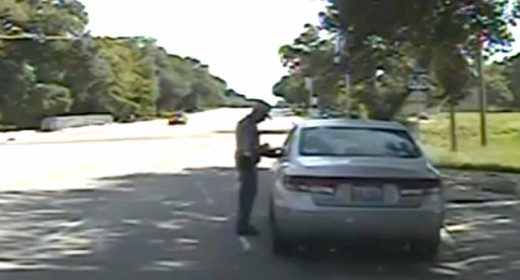
Your Rights Versus Their Rights
For the sake of clarity, simplicity, time and space lets focus on the Sandra Bland traffic stop. Bland was stopped by a safety patrol officer in Texas for failing to signal a lane change. After she was stopped and she was about to receive her citation (a warning) she explained that she moved over to allow him to pass since he was coming up behind her at a high rate of speed. In the process of doing so she failed to signal her lane change. Nonetheless the officer decided to give her a citation anyway which was only a warning. In the process of issuing the warning the traffic stop escalated in intensity resulting in Bland being arrested and taken to jail where three days later she was found unresponsive in her cell an apparent victim of hanging herself. Whether she did or not is not the focus of this article however. We want to explore the legal aspects of this traffic stop in hopes of clearing up some doubts, questions, speculations, assumptions and misunderstandings.
Sandra Bland's traffic stop seemed to go in the wrong direction when she was asked to put out her cigarette to which she replied "I'm sitting in my own car. Why do I have to put my cigarette out?" Immediately after her question the patrol officer told Bland "You can get out of the car now." For many people the question they have is "Was she required to get out of the car?" The short answer is yes. The long answer is this: In Texas and in Supreme Court ruling it has been established that a patrol officer can ask a motorist to get out of their car anytime during a traffic stop. In the case of Mimms vs. Pennsylvania the Supreme Court ruled that a driver can be asked to exit their vehicle during a lawful traffic stop as a matter of safety or to help facilitate the stop. In Texas the state law requires a driver to comply with a request to exit their vehicle. Further, these requests can be made without explanation to the driver which is a courtesy that is usually extended but not required by law. Although the officer in Bland's case asked her to get out of her car at the worst possible time he DID give her a lawful order as he repeatedly said. His mistake was not sufficiently explaining his actions even though he was not required to do so by law. And not only can they ask you to get out of your car they can pat you down if they suspect you of being armed. The Mimms case established this as well.
Although the officer had the legal right to ask Bland to exit her car his timing and overall execution of the law was horrendous once the situation escalated. After demanding seven times that Bland exit the car he pulled his taser gun from his holster and threatened to "light her up" if she continued to refuse. This was an obvious overreaction. Policemen are allowed to use force one step above the force being used against them according to the law. In other words if a person is resisting them violently physically with their hands an officer can respond a level higher with his baton or taser. Sandra Bland, although resisting, was not violent enough or threatening enough to warrant the officer using a taser against her. Once out of the car he put the taser away but its use was totally uncalled for.
Once the two of them were on the sidewalk they began to argue. Bland started taunting the officer which is never a good thing to do but not illegal. At this point the officer had already committed to arresting her so he proceeded to do so under Bland's protests. Many question and in many cases dispute whether Bland could be arrested at this juncture. The details are murky as to what went on so that is unclear but from a legal standpoint a motorist can be arrested for any traffic violation. It is an unknown fact but according to the letter of the law a traffic violation is an arrestable offence and technically when you are stopped for a traffic law violation you are actually under arrest. The reason being that you are not free to leave. That will be explained in the next section "Detainment vs. Arrest." But the truth is policemen have the legal right to arrest a driver for a traffic law violation they just as a rule don't do it because of obvious reasons. One of those reasons is the enormous amount of paperwork that would result from it and the overcrowding that would occur if everyone who broke a traffic law was arrested. Not to mention the overwhelming impact on employers who would have huge numbers of missing employees. But truthfully it is legal.
Once the officer had committed himself to arresting Bland she was then legally required by law to allow him to do so. Again the law sides with the officer. When an officer tells you they are going to arrest you under the law you are under arrest until it can be established that the arrest was illegal. The law does not allow citizens to pick and choose when they will allow themselves to be arrested or not. The court system is in place and designed to handle that aspect of the arrest not the street. Unfortunately Sandra Bland knew just enough about the law and her rights to get herself in a situation that was out of her expanse of knowledge.
When Bland resisted arrest she committed an arrestable offence whether the actual arrest was legal or not and there is little doubt that when she went to trial or a hearing for her case the judge would have likely held up her arrest on the grounds she (allegedly) assaulted the officer------an arrestable offence regardless of the fact the initial "arrest" was improper and possibly illegal. This is the reason why it is never a good idea to debate law with a law officer unless you are in the legal field and have the knowledge necessary to effectively debate him. At a traffic stop you have the first amendment right to express your opinion of the situation but arguing with a policeman or worse fighting or resisting him is a recipe for disaster.
Sandra Bland Being Forced To Exit Her Vehicle
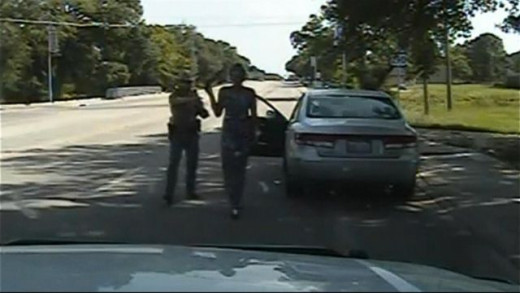
Detainment Versus Arrest
As briefly mentioned earlier, when you are stopped for a traffic law violation you are technically under arrest. The litmus test or qualifier for arrest is whether you are free to leave at any time. When you are under arrest you are being legally detained because you have committed a crime or violated a law. At a traffic stop when you are pulled over you are, in the eyes of the law, under arrest for breaking a traffic law. These are the actual mechanics of the law. You are considered under arrest because you are not free to leave until you have either been served with a citation or "released from custody" by the patrolman.
Detainment involves being stopped when no apparent violation of law has been witnessed but a suspicion exists that warrants you being momentarily stopped or detained to determine if further action is required or warranted. In both situations you must comply sufficiently with the law to be allowed to continue on your way. In both cases you can inquire about the status of your situation and whether you are able to go on your way. A police officer cannot detain you for an unreasonable amount of time. After a couple of questions you should be allowed to continue with your activities.
Sandra Bland In Jail Being Processed, Photographed and Making Phone Calls
Know Your Limitations
It is good to know something about the law and what your rights are as a citizen. There is nothing wrong with that but it is important to remember where you stand as far as your knowledge of the law is concerned. I myself am not a lawyer or in the legal profession. I have done some research over the years however and I know a lot of people in law enforcement and law practice. In this age of information it is easy for people to get a bit of knowledge and begin to think themselves to be something that they are not. With the knowledge I have I would never try to debate with a police officer, judge or lawyer about legal matters or rights because in the end I would be outgunned. It is a good thing to know enough about the law to know when you may be getting mistreated but to try to be an amateur legal expert is just asking for trouble. It is never a good idea to argue with a policeman on the street. That is a losing proposition. It is better to fight your battles in a courtroom. There is no doubt the officer in Sandra Bland's case made some terrible blunders but so did Sandra Bland. When confronting a police officer out in public it is always better to comply as much as possible without being overly sheepish. Respect goes a long way...........on both sides




